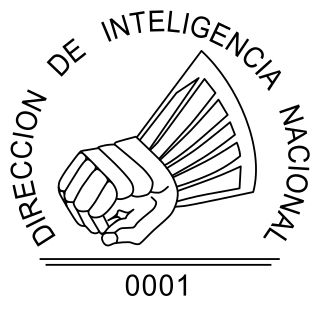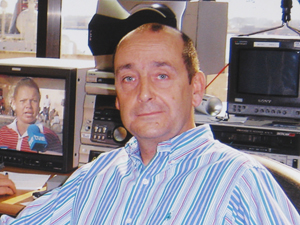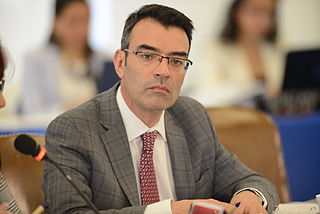Selected articles
(14 May 1962) "Report from a Troubled Colony” The New Republic
(16 May 1964) "Autogestion: Algeria's Socialist Experiment" The Economic Weekly,
(23 May 1964) “Algeria's War Orphans” Christian Science Monitor
(19 July 1966) “Suez, dix ans apres, Les consequences de la nationalisation" Journal de Genève
(29 December 1967) “Chile's Mini-Revolution” Commonweal
(27 May 1968) “Torture in Democracy's Homeland” Christianity and Crisis
(March 1968) “The Real Latin America (photographic essay)” Renewal
( March, 1968) “How I Became National Champion: Letter from Bolivia” Skiing
(6 January 1969) “Greek Junta on Trial” The Nation
April 1970 pp 44–49) “Inquisition Greek style” Ramparts Magazine
(4 August 1972) "Torture as an Institution" New York Times
(March 1978) "The Subjective Camera as Leading Character" American Cinematographer

Vandana Shiva is an Indian scholar, environmental activist, food sovereignty advocate, ecofeminist and anti-globalization author. Based in Delhi, Shiva has written more than 20 books. She is often referred to as "Gandhi of grain" for her activism associated with the anti-GMO movement.

Operation Condor was a campaign of political repression by the right-wing dictatorships of the Southern Cone of South America, involving intelligence operations, coups, and assassinations of left-wing sympathizers in South America which formally existed from 1975 to 1983. They were backed by the United States, Colombia, Venezuela, and France who were collaborators and financiers of the covert operations. Condor was formally created in November 1975, when Chilean dictator Augusto Pinochet's spy chief, Manuel Contreras, invited 50 intelligence officers from Chile, Uruguay, Argentina, Paraguay, Bolivia, and Brazil to the Army War Academy in Santiago, Chile. The operation ended with the fall of the Argentine junta in 1983.

The Dirección de Inteligencia Nacional or DINA was the secret police of Chile during the dictatorship of Augusto Pinochet. The DINA has been referred to as "Pinochet's Gestapo". Established in November 1973 as a Chilean Army intelligence unit headed by Colonel Manuel Contreras and vice-director Raúl Iturriaga, the DINA was then separated from the army and made an independent administrative unit in June 1974 under the auspices of Decree 521. The DINA existed until 1977, after which it was renamed the Central Nacional de Informaciones or CNI.

The 1973 Chilean coup d'état was a military overthrow of the democratic socialist president of Chile Salvador Allende and his Popular Unity coalition government. Allende, who has been described as the first Marxist to be democratically elected president in a Latin American liberal democracy, faced significant social unrest, political tension with the opposition-controlled National Congress of Chile. On 11 September 1973, a group of military officers, led by General Augusto Pinochet, seized power in a coup, ending civilian rule.

An authoritarian military dictatorship ruled Chile for seventeen years, between 11 September 1973 and 11 March 1990. The dictatorship was established after the democratically elected socialist government of Salvador Allende was overthrown in a coup d'état backed by the United States on 11 September 1973. During this time, the country was ruled by a military junta headed by General Augusto Pinochet. The military used the breakdown of democracy and the economic crisis that took place during Allende's presidency to justify its seizure of power. The dictatorship presented its mission as a "national reconstruction". The coup was the result of multiple forces, including pressure from conservative groups, certain political parties, union strikes and other domestic unrest, as well as international factors.

The Rettig Report, officially The National Commission for Truth and Reconciliation Report, is a 1991 report by a commission designated by Chilean President Patricio Aylwin detailing human rights abuses resulting in deaths or disappearances that occurred in Chile during the years of military dictatorship under Augusto Pinochet, which began on September 11, 1973 and ended on March 11, 1990. The report found that over 2,000 people had been killed for political reasons, and dozens of military personnel have been convicted of human rights abuses. In addition, many reforms have been made based on the recommendations of the report including an official reparations department.

José Toribio Merino Castro was an admiral of the Chilean Navy who was one of the principal leaders of the 1973 Chilean coup d'état, along with General Augusto Pinochet of the Army, General Gustavo Leigh of the Air Force, and General César Mendoza of the Carabineros. Together they established a military dictatorship that ruled Chile from 1973 until 1990, during which more than 3,197 Chilean citizens were executed or simply "disappeared", according to the reports of official bi-partisan commissions established by the President of Chile, Patricio Alwyn, in the 1990s. In addition, a further 28,459 Chileans were victims of torture, which included approximately 3,400 cases of sexual abuse of women.

The Greek junta or Regime of the Colonels was a right-wing military junta that ruled Greece from 1967 to 1974. On 21 April 1967, a group of colonels overthrew the caretaker government a month before scheduled elections which Georgios Papandreou's Centre Union was favoured to win.

The situation of human rights in Laos has often been, and remains, a recognized cause for serious concern. Laos is one of a handful of Marxist-Leninist governments and is ruled by a one-party communist government backed by the Lao People's Army in alliance with the Socialist Republic of Vietnam.

The Government Junta of Chile was the military junta established to rule Chile during the military dictatorship that followed the overthrow of President Salvador Allende in the 1973 Chilean coup d'état. The Government Junta was the executive and legislative branch of government until December 17, 1974, when Augusto Pinochet was formally declared President of Chile in late 1974. After that date, it functioned strictly as a legislative body until the return to democracy in 1990.
José Quiroga Fuentealba is a cardiologist who served as a physician to Chilean president Salvador Allende. During the 1973 Chilean coup d'état, Quiroga witnessed the Chilean Army assault the government palace. He was detained and beaten until his release was ordered by a Chilean military general.

Augusto José Ramón Pinochet Ugarte was a Chilean military officer who was the dictator of Chile from 1973 to 1990. From 1973 to 1981, he was the leader of the military junta, which in 1974 declared him President of the Republic and thus the dictator of Chile; in 1980, a referendum approved a new constitution confirming him in the office, after which he served as de jure president from 1981 to 1990. His time in office remains the longest of any Chilean ruler.

¡Qué hacer! is a 1972 Chilean-American drama film directed by Raúl Ruiz, Nina Serrano, and Saul Landau. According to co-director Nina Serrano, "The formal script in the first draft was written by Saul Landau, Raul Ruiz, and Jim Becket. But as the film was somewhat improvised the actors and I also added or molded the script as the filming went along." It was screened in the Directors' Fortnight section of the 1972 Cannes Film Festival.

Vicente Botín is a writer and journalist. He was born in Burgos (Spain) and studied Journalism, Politics and Sociology in Universidad Complutense de Madrid.

James (Jim) Cavallaro is a professor of law and the co-founder and executive director of the University Network for Human Rights. He teaches human rights at Wesleyan University, where he is a director of the Minor in Human Rights Advocacy, as well as the Wesleyan ACTS for Human Rights program. In addition to Wesleyan, Cavallaro frequently teaches at Yale Law School, and the University of California at Los Angeles (UCLA). He also teaches at Columbia Law School and the University of California Berkeley. Prior to launching the University Network, Cavallaro founded the International Human Rights and Conflict Resolution Clinic at the Mills Legal Clinic at Stanford Law School, United States. In 2018, Cavallaro and Ruhan Nagra founded the University Network for Human Rights, an organization that engages undergraduates and graduate students and their universities in human rights work in the United States and around the world. Cavallaro served as a commissioner (2014-2017) and President (2016-2017) of the Inter-American Commission on Human Rights. Cavallaro received his BA from Harvard University and his JD from University of California at Berkeley School of Law, where he served on the California Law Review and graduated with Order of the Coif honors. He also holds a doctorate in human rights and development from Pablo de Olavide University, Seville, Spain.

Human rights abuses in Chile under Augusto Pinochet were the crimes against humanity, persecution of opponents, political repression, and state terrorism committed by the Chilean Armed Forces, members of Carabineros de Chile and civil repressive agents members of a secret police, during the military dictatorship of Chile under General Augusto Pinochet from 1973 to 1990.
Brandt Andersen is an American Activist, Writer, Director, and Producer. Andersen wrote and directed The Strangers' Case. A feature film based on Andersen's short film titled Refugee. The Strangers' Case stars Yasmine Al Massri, Omar Sy, and Jason Beghe. The film was Andersen's feature directorial debut and opened at the Berlin International Film Festival winning the Amnesty International Prize. Andersen's short film Refugee opened at the Cairo International Film Festival and has been screened at film festivals across the globe, by the UNHCR for World Refugee Day, and at Banksy's Walled Off Hotel. The film earned Andersen the award for Best Director and Best Dramatic Short Film at the 2020 French Riviera Film Festival and was short-listed for an Academy Award for Best Live Action Short in 2020. As a producer Andersen is known for such films as Everest, Lone Survivor, 2 Guns, Escape Plan, and Broken City. His film The Flowers of War was nominated for a Golden Globe Award in 2011. Two of Andersen's films have premiered at the Sundance Film Festival. First in 2012 with the Stephen Frears film Lay The Favorite, and then in 2015 with the Jared Hess-directed Don Verdean.

Portugal is generally considered as successful in upholding the civil liberties and protecting the human rights of its citizens. Portugal has proved to be determined in promoting and respecting human rights at an international and national level. The country's minister of Justice as of September 2018, Francisca Van Dunem, said that Portugal has had "a good track record" on human rights but violations still do persist.
In September 1967, Denmark, Norway, Sweden and the Netherlands brought the Greek case to the European Commission of Human Rights, alleging violations of the European Convention of Human Rights (ECHR) by the Greek junta, which had taken power earlier that year. In 1969, the Commission found serious violations, including torture; the junta reacted by withdrawing from the Council of Europe. The case received significant press coverage and was "one of the most famous cases in the Convention's history", according to legal scholar Ed Bates.
Greece was not one of the ten founding members of the Council of Europe, but it was the first state to join, doing so three months later, on 9 August 1949. In 1953, the Hellenic Parliament unanimously ratified the Council of Europe's human rights treaty, the European Convention on Human Rights, and its first protocol. Greece filed the first interstate case before the European Commission of Human Rights, Greece v. United Kingdom, in 1956, alleging human rights violations in British Cyprus.















